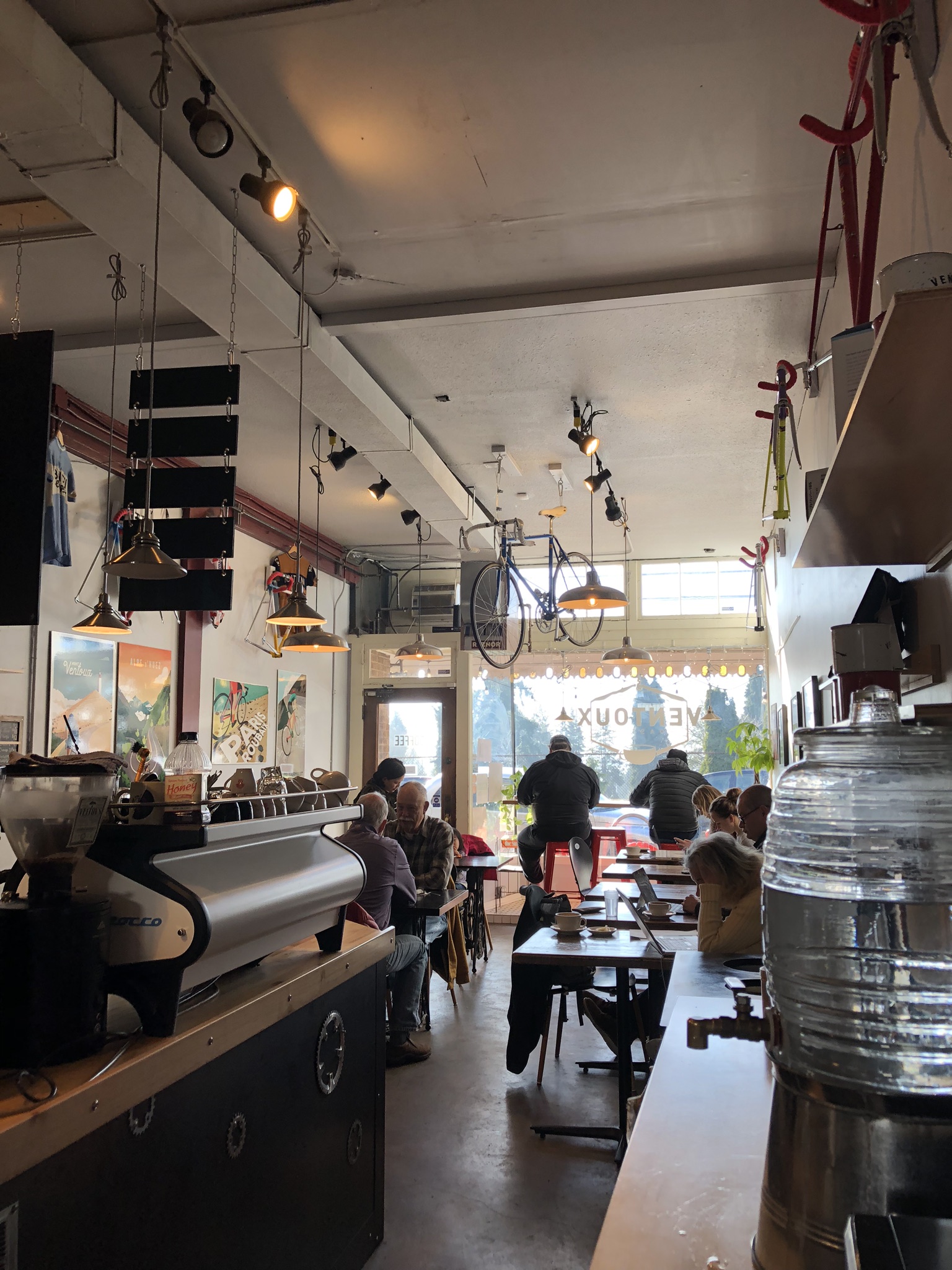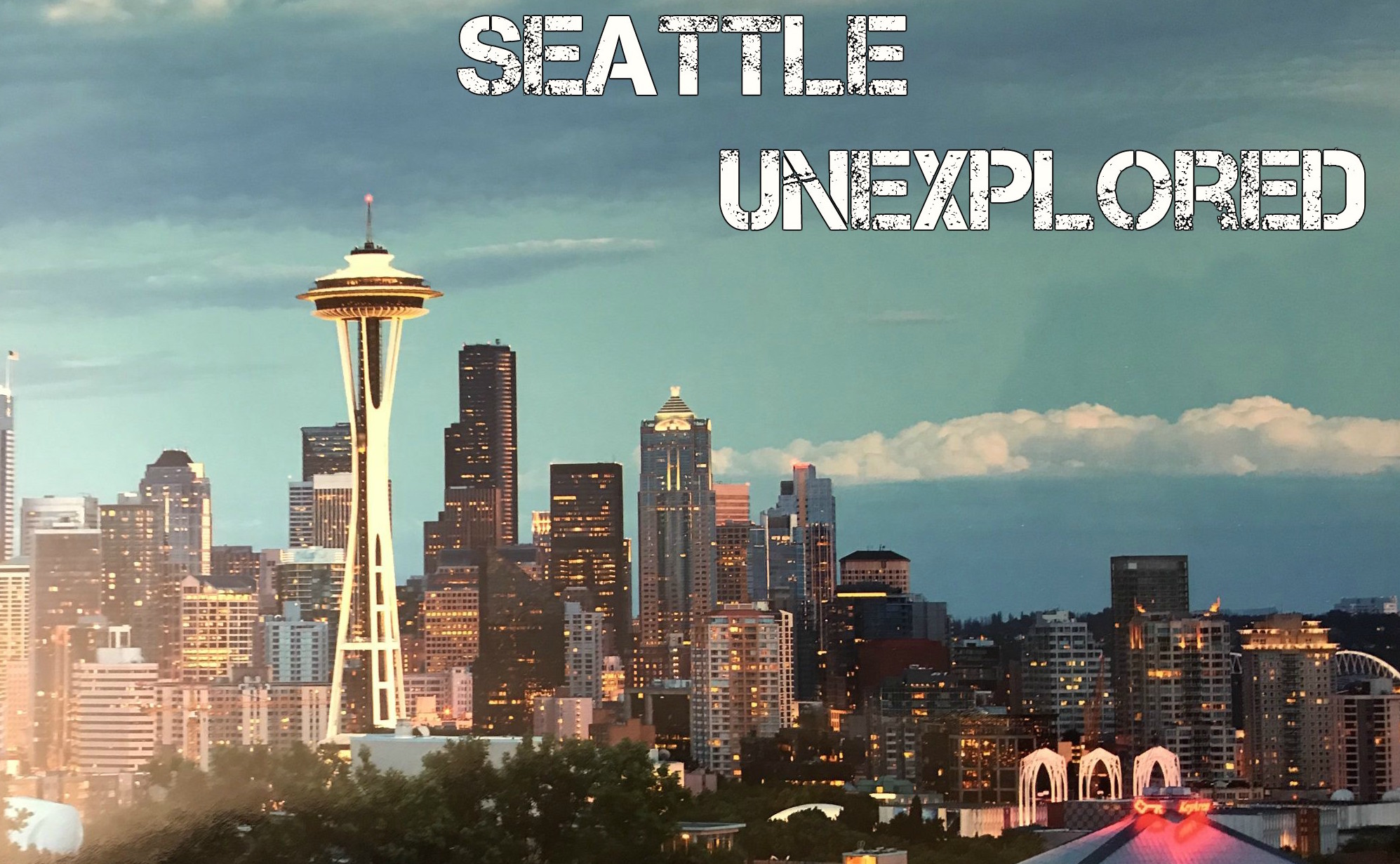The Relationship Between Coffee and Cycling

The Relationship Between Coffee and Cycling – Seattle

For some reason there is some type of correlation/relationship between coffee and cycling as evidenced by the multiple cycle shops that serve coffee or bicycle themed coffee shops around Seattle, such as Peloton Cafe, Metier Seattle Cafe, Ventoux Roasters, Rapha Seattle, Good Weather Bicycle & Cafe, Pim Coffee. Even Caffe Umbria in Ballard has a cycling jersey hanging. And any longtime Seattleite knows that if you ever walk by Monorail Espresso in downtown, you’ll see a bunch of bike messengers hanging out there.
Bicycling Magazine named Seattle the Best Bike City in the US. And we all know Seattle is known for it’s coffee scene, so in a way it makes sense that we have so many cycling themed coffee shops.

Source: Yelp
It got us curious about the relationship between coffee and cycling, so we’d thought we’d research it. What peaked our curiosity was that you don’t hear about marathon runners, basketball players, football players, tennis players or any other athletes who seem to need a punch of energy and a high level of endurance, drinking coffee. Let’s delve in, shall we?
It appears that cyclists have turned to coffee to help with performance for quite some time. In fact ,the WADA(World Anti-Doping Agency) monitored and set a limit of caffeine below 12 microgrammes per millitre of urine, which is 8 shots of espresso. This limit was done away with in 2004.

Source: Yelp
Here are some articles we found that explain the love affair between cyclists and coffee and some of the reasons behind it:
Why Do Cyclists Drink So Much Coffee? By Jiří Kaloč
It affects how you pace yourself-Scientific consensus has swung towards a theory describing how caffeine effects pace regulation during exercise. The science of the brain and exercise performance is still in its early years, so we should still take this with a grain of salt, but it suggests caffeine can lower an athlete’s perception of effort, allowing them to maintain a higher level of output. This means that under the effects of caffeine we allow ourselves to go harder than we otherwise would.

Source: Yelp
Coffee And Competitive Cycling: A Cohesive Bond by MACKENZIE CHAMPLIN
Cyclists, both amateurs and professionals, see coffee as part of their routine. The caffeine elevates the heart rate, expedites blood to muscles, and makes sustained effort less fatiguing. In addition to the physical effects, the mid-ride/post-ride/every-opportunity-possible cafe stop is a ritual among cyclists, who use it as a social destination.
For Daniel Holloway, the two-time defending USA Amateur Criterium Champion, whose year is spent on the road, coffee culture is a nice constant. “When we race as a team, we’re always going to coffee shops wherever we’re at, it’s a ritual. It brings some kind of normalcy to the program that you miss when you’re traveling all over the country. You know the coffee shop is going to be more or less the same wherever you go—the coffee is going to be a little different, the style of the shop is going to be a little different, but that whole atmosphere is very similar. Coast to coast, you know you can sit at a coffee shop and shoot the shit with your friends.”

Source: Yelp
Cycling And Coffee: A Stimulating Study
Coffee and cycling have gone hand in hand together for decades with Italian espresso machine manufacturer Faema sponsoring a pro cycling team all the way back in the 1960s. Caffeine is one of the best performing enhancing drugs for cyclists and studies have shown that low doses of caffeine (~200mg) can positively affect endurance, alertness, and overall cognitive performance during activity.
Drinking coffee after a ride has also been found to improve recovery and glycogen levels also.
Drinking coffee also adds a social experience that brings the entire cycling community together. While the SHIMANO BIKE NYC was open, we had cyclists from all over the city come in to enjoy a nice cup of coffee but also to share in the experience with one another and learn about each cyclist’s story.

Source: Yelp
6 Truths about Coffee and Caffeine-HOW CAFFEINE CAN IMPROVE YOUR RIDE
Caffeine crowds out a calming brain chemical called adenosine,” he says. You become more alert, you react faster, and you don’t feel like you’re working as hard, all of which add up to training or competing at a higher intensity for a longer period of time and being more agile in a pack.
It Will Not Dehydrate You=”In reasonable doses, caffeine alone won’t lead to more bathroom breaks during a ride or a greater risk of dehydration,” says Mindy Millard-Stafford, PhD, former president of the American College of Sports Medicine. The upshot, she says, is that regardless of whether you supplement with caffeine, you don’t need additional fluid to avoid performance-sapping dehydration during a ride. The long-held belief that caffeine can muck with your body’s ability to regulate heat during exercise in hot weather has also been muted by science.
Diy Post-Ride Perk-Australian researchers found that when cyclists refueled with carbohydrates and caffeine after a ride, they accumulated 66 percent more muscle glycogen (the main fuel for working muscles) than when they ate only carbs. This DIY bar provides an ideal combination of the two.

We found that the close relationship between coffee and cycling really does make sense. I was always under the impression that coffee due to it’s caffeine, dehydrated you. I also didn’t realize how prevalent coffee culture was in the cycling world. Doing this research and understanding how bicycle-friendly Seattle is, explains the number of cycling + coffee places there are around Seattle.
Related:

Leave A Comment